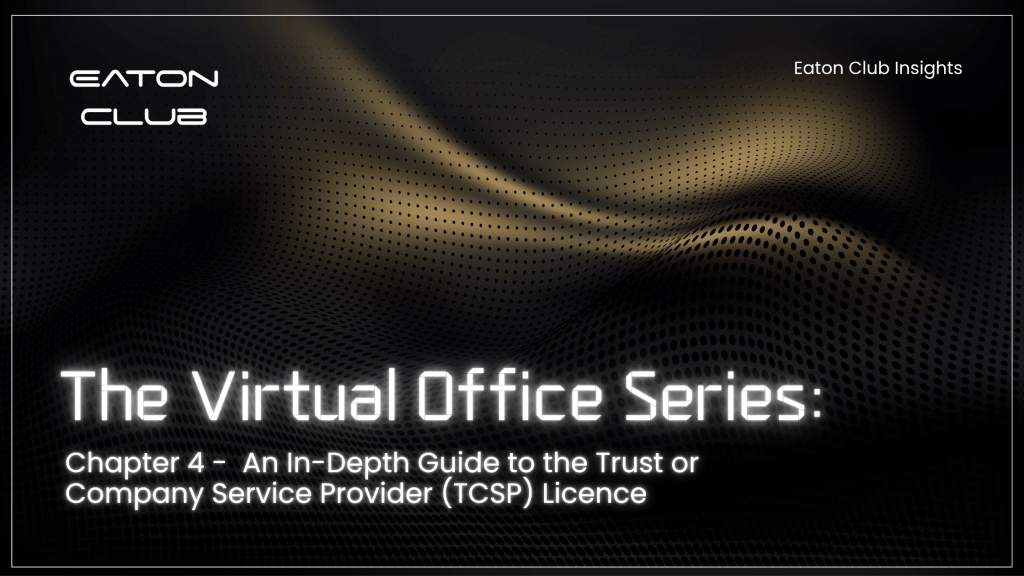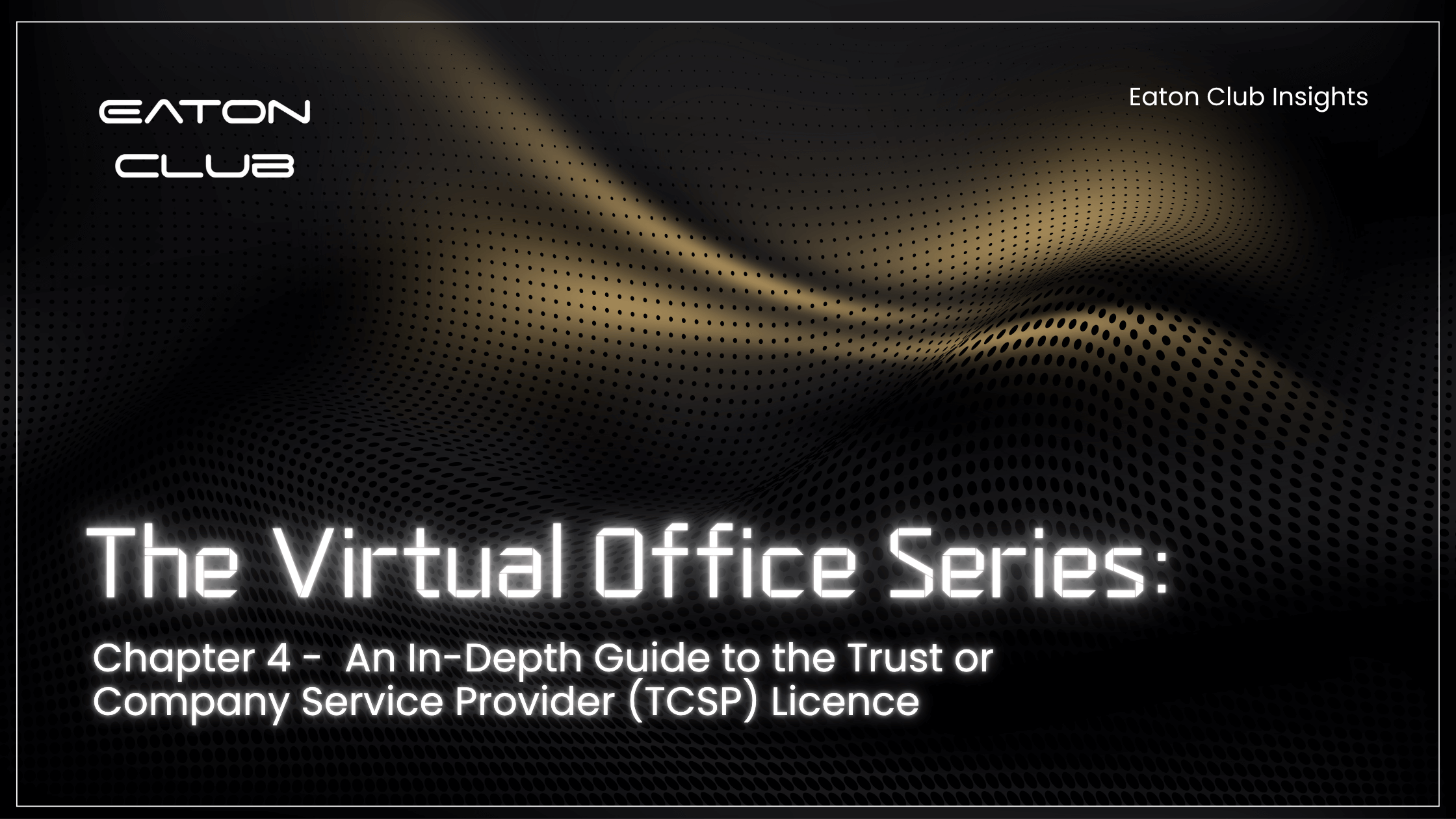The Cornerstone of Compliance: An In-Depth Guide to the Trust or Company Service Provider (TCSP) Licence

The TCSP licence is the regulatory core of the entire virtual office and company service industry in Hong Kong. When choosing a Hong Kong virtual office, one of the most important considerations is the provider’s compliance credentials. It is not only proof of the service provider’s legal operation but also part of a strict compliance framework designed to prevent financial crime. For businesses using these services, understanding the TCSP regime and its evolving requirements is crucial for managing their own risks and ensuring smooth business operations. This section will delve into the details of the TCSP licence, especially the significant regulatory updates taking effect in 2025 and their practical impact on businesses.
4.1 Demystifying the TCSP Licence
The TCSP licence is a mandatory regulatory regime established under Hong Kong’s Anti-Money Laundering and Counter-Terrorist Financing Ordinance (AMLO). Its fundamental purpose is to bring the company service industry into Hong Kong’s overall anti-money laundering and counter-terrorist financing (AML/CFT) regulatory framework to prevent criminals from using shell companies or other legal entities for illegal activities.
Any person or company carrying on the following businesses in Hong Kong must apply for and hold a TCSP licence:
- Forming corporations or other legal persons;
- Acting, or arranging for another person to act, as a director or secretary of a corporation;
- Providing a registered office, business address, or correspondence address;
- Acting, or arranging for another person to act, as a trustee of a trust or as a nominee shareholder.
This regulation is directly related to the address requirements for company registration in Hong Kong. The licensing process has strict standards. The Companies Registry conducts a “fit and proper” test on the applicant institution and all its directors and ultimate beneficial owners, assessing their criminal records, compliance with the AMLO, etc. Operating without a licence is a criminal offense, punishable upon conviction by a fine of up to HKD 100,000 and imprisonment for 6 months. Licensed institutions must also appoint a Compliance Officer and a Money Laundering Reporting Officer to oversee and enforce internal AML policies.
4.2 Responding to the 2025 AML/CFT Guideline Updates (Effective March 3, 2025)
The Hong Kong Companies Registry has issued a new version of the “Guideline on Compliance of Anti-Money Laundering and Counter-Terrorist Financing Requirements for Trust or Company Service Providers,” which will take effect on March 3, 2025. This update marks a significant tightening of regulatory requirements, aimed at aligning Hong Kong’s regulations with the latest international standards of the Financial Action Task Force (FATF). These changes will have a profound impact on the daily operations of TCSPs and their clients.
Key updates include:
- Drastically Shortened Identity Verification Timeline: The time limit for TCSPs to complete the identity verification part of Customer Due Diligence (CDD) for new clients has been significantly reduced from 60 days to 30 working days. If verification is not completed within 30 working days, the licensee must suspend the business relationship with that client. If it is still not completed within 120 working days, the business relationship must be terminated.
- New Mandatory Risk Assessment Framework: The new guideline introduces a dual risk assessment mechanism. TCSPs must not only conduct a “Customer Risk Assessment” (CRA) for each client but also an “Institutional Risk Assessment” (IRA) covering the entire institution. The IRA requires licensees to comprehensively assess the overall money laundering risks their business faces in terms of customer types, geography, products, and delivery channels, and to develop corresponding risk management policies.
- Clearer Enhanced Due Diligence (EDD) Requirements: The new guideline provides more specific examples of potential high-risk situations that, once triggered, require TCSPs to take enhanced due diligence measures. These high-risk factors include clients being shell companies with no clear business purpose, unusually complex ownership structures, and involvement with high-risk jurisdictions.
Table 2: Summary of Key Updates in the 2025 TCSP Guideline
| Compliance Area | Pre-2025 Requirement | Post-2025 Requirement (from March 3, 2025) | Direct Impact on Businesses |
| Customer Identity Verification | Complete within 120 days of establishing a business relationship. | Complete within 30 working days of establishing a business relationship. | Must promptly provide all due diligence documents at the beginning of the engagement; any delay could lead to service suspension. |
| Risk Assessment | Conduct a risk-based assessment of clients. | Must conduct both an Institutional Risk Assessment (IRA) and a Customer Risk Assessment (CRA) for every client. | Providers will screen clients based on their institutional risk appetite; businesses in certain industries or regions may be deemed high-risk and rejected. |
| Enhanced Due Diligence (EDD) | Take enhanced measures for high-risk clients. | Provides more specific triggers for EDD (e.g., shell companies, complex structures). | Businesses with complex business models or ownership structures will face stricter scrutiny and more in-depth background checks. |
4.3 Series Conclusion: Making an Informed and Compliant Decision
This series of articles has provided a comprehensive analysis of virtual offices in Hong Kong from four key dimensions. We first explored their strategic value beyond cost savings, then compared the different types of providers and their offerings in the market, clarified their legal application in company registration, and finally delved into the cornerstone of business security: TCSP compliance.
In conclusion, choosing a virtual office in Hong Kong is not only a business decision to enhance corporate image and operational efficiency but also a compliance action that requires strict adherence to laws and regulations. A successful choice begins with a clear understanding of one’s own needs, is based on a comprehensive comparison of the market, and is ultimately grounded in a rigorous adherence to legal compliance. We hope this guide helps you make the most informed decision, laying a solid foundation for your business’s success in Hong Kong.





